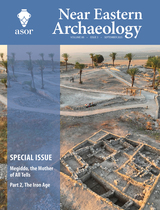6 books about Auditing
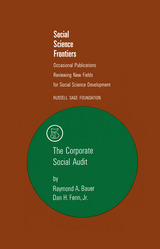
The Corporate Social Audit
Raymond A. Bauer
Russell Sage Foundation, 1972
Much has been said about the general subject [of how to measure a corporation's social performance] but little has been contributed to answering this fundamental question. Thus, in November 1971, Russell Sage Foundation sponsored a development effort aimed at examining the "state-of-the-art" and at suggesting a program of research that would advance that state. "Raymond Bauer and Dan Fenn have provided us with a first product—a state-of-the-art conception and description, and recommendations for future development. They are to be commended for their astute considerations and their clear thinking in the murky pond of corporate social audits. Their effort has provided the social science community with a point of departure for future research in the area."—Eleanor Bernert Sheldon A Volume in the Russell Sage Foundation's Social Science Frontiers Series
[more]

Forensic Accounting and Fraud Examination
Knowledge, Skills, and Abilities
Richard Dull
MOOC Books, 2015
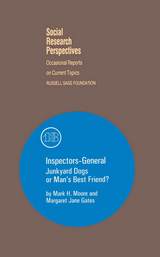
Inspectors-General
Junkyard Dogs or Man's Best Friend?
Mark Moore
Russell Sage Foundation, 1986
In 1978, determined to combat fraud, waste, and abuse in government programs, Congress overwhelmingly approved the creation of special Offices of Inspectors-General (OIGs) in many federal departments. Moore and Gates here provide the first evaluation of this important institutional innovation. Clearly and objectively, they examine the powerful but often imprecisely defined concepts—wastefulness, accountability, performance—that underlie the OIG mandate. Their study conveys a realistic sense of how these offices operate and how their impact is affected by the changing dynamics of politics and personality. A Volume in the Russell Sage Foundation's Social Science Perspectives Series
[more]
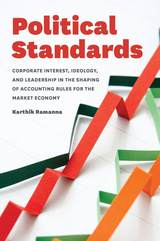
Political Standards
Corporate Interest, Ideology, and Leadership in the Shaping of Accounting Rules for the Market Economy
Karthik Ramanna
University of Chicago Press, 2015
Prudent, verifiable, and timely corporate accounting is a bedrock of our modern capitalist system. In recent years, however, the rules that govern corporate accounting have been subtly changed in ways that compromise these core principles, to the detriment of the economy at large. These changes have been driven by the private agendas of certain corporate special interests, aided selectively—and sometimes unwittingly—by arguments from business academia
With Political Standards, Karthik Ramanna develops the notion of “thin political markets” to describe a key problem facing technical rule-making in corporate accounting and beyond. When standard-setting boards attempt to regulate the accounting practices of corporations, they must draw on a small pool of qualified experts—but those experts almost always have strong commercial interests in the outcome. Meanwhile, standard setting rarely enjoys much attention from the general public. This absence of accountability, Ramanna argues, allows corporate managers to game the system. In the profit-maximization framework of modern capitalism, the only practicable solution is to reframe managerial norms when participating in thin political markets. Political Standards will be an essential resource for understanding how the rules of the game are set, whom they inevitably favor, and how the process can be changed for a better capitalism.
With Political Standards, Karthik Ramanna develops the notion of “thin political markets” to describe a key problem facing technical rule-making in corporate accounting and beyond. When standard-setting boards attempt to regulate the accounting practices of corporations, they must draw on a small pool of qualified experts—but those experts almost always have strong commercial interests in the outcome. Meanwhile, standard setting rarely enjoys much attention from the general public. This absence of accountability, Ramanna argues, allows corporate managers to game the system. In the profit-maximization framework of modern capitalism, the only practicable solution is to reframe managerial norms when participating in thin political markets. Political Standards will be an essential resource for understanding how the rules of the game are set, whom they inevitably favor, and how the process can be changed for a better capitalism.
[more]
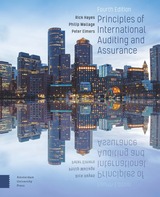
Principles of International Auditing and Assurance
4th Edition
Rick Hayes
Amsterdam University Press, 2021
The first textbook based upon International Standards on Auditing (ISAs), this fully revised and updated fourth edition presents a structured approach to auditing principles using ISAs as its basis. The International Standards on Auditing are now widely regarded as the global benchmark for auditing standards and as such an important audit quality indicator.
This book describes the developments and practical use of all ISAs, as well as significant national standards in different countries. The new edition has been updated in line with International Standards and presents a truly International perspective. The book provides students with a real-world perspective as close to current auditing practice and thinking as possible.
Key features:
-Structure of the book following the four phases of the audit process -Coverage of the latest auditing insights including technology and automated tools & techniques (data analytics) -Updates of the most recent auditing & assurance standards, including ISA 315 and 540 -Highlighting the broader range of assurance engagements -Practice exam-style questions with end-of-chapter answers
This book describes the developments and practical use of all ISAs, as well as significant national standards in different countries. The new edition has been updated in line with International Standards and presents a truly International perspective. The book provides students with a real-world perspective as close to current auditing practice and thinking as possible.
Key features:
-Structure of the book following the four phases of the audit process -Coverage of the latest auditing insights including technology and automated tools & techniques (data analytics) -Updates of the most recent auditing & assurance standards, including ISA 315 and 540 -Highlighting the broader range of assurance engagements -Practice exam-style questions with end-of-chapter answers
[more]
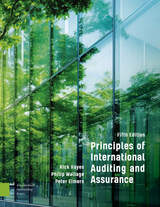
Principles of International Auditing and Assurance
5th Edition
Rick Hayes
Amsterdam University Press, 2024
This groundbreaking textbook redefines auditing education by seamlessly incorporating International Standards on Auditing (ISAs) and other IAASB assurance standards at its core, establishing a new paradigm in how auditing principles are taught. Recognized worldwide as the hallmark of auditing excellence, ISAs set the highest benchmarks for audit quality. This latest edition meticulously unfolds the evolution, application, and global integration of ISAs, alongside other assurance standards and key national frameworks, ensuring that the content remains at the forefront of international practices. It provides students with an extraordinary depth of insight into auditing and assurance, mirroring the very latest in contemporary practices and thought leadership.
Key highlights:
Key highlights:
- Comprehensive exploration of the audit profession, essential concepts, the audit process across four stages, and specialized topics.
- Insight into the latest advancements in audit technology, including data analytics.
- Updates on the latest auditing and assurance standards, ensuring relevance and applicability.
- Expansion into a wide spectrum of assurance engagements, including a brand-new dedicated chapter on sustainability assurance.
- Practice questions styled like exams at the end of each chapter, facilitating effective review and learning.
[more]
READERS
Browse our collection.
PUBLISHERS
See BiblioVault's publisher services.
STUDENT SERVICES
Files for college accessibility offices.
UChicago Accessibility Resources
home | accessibility | search | about | contact us
BiblioVault ® 2001 - 2025
The University of Chicago Press




